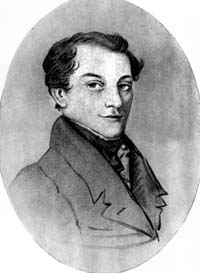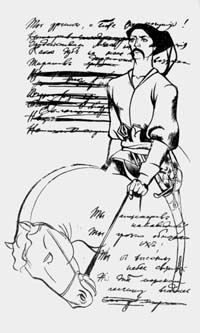The history of Ukrainian-Russian cultural relations is full of dramatic, contradictory, and occasionally tragic pages. It is not easy to read: one must analyze and reconsider much in our peoples’ past and, more often than not, repudiate our all too familiar “black and white” perception of the world. For this past has everything: a cynical imperial dictate and undisguised great state arrogance, when the supreme authorities in St. Petersburg or Moscow flatly refused to admit the existence of Ukrainian culture and the Ukrainian language, as well as the mutual enrichment of the spiritual worlds of these two Slavic peoples and fruitful, creative competition. It is crucial to understand that if we want to see history in its entirety and examine extremely complex relationships between seemingly unrelated things, we must focus our attention on all aspects of the historical process rather than on separate fragments and “snapshots” of bygone days. This also fully applies to the history of culture.
In other words, the history of Russia was comprised not only of Nicholas I, Valuev, Purishkevich, Suslov and countless other “spirit breakers” and, to quote Shevchenko, “unforgettable blockheads,” but also true democrats of the highest caliber, ardent freethinkers, internationalists in the precise and original meaning of the word, people who were prepared to lay down their lives for the freedom and honor of their fatherland. It is no accident that the latter category of people, “martyr apostles” (to quote Shevchenko again), treated Ukraine and its culture and history with the profoundest and sincerest respect, without any pseudo-liberal “posing.”
Convincing proof of this is the life and works of Kondratiy Ryleev (1795-1826), an outstanding Russian poet, patriot, thinker, public figure, and leader of the Northern Society of Decembrists. Ryleev’s personality, poetic legacy, and the ethical example of his accomplishments and spiritual might are awe-inspiring even today. (According to the priest, Petr Mislovsky, who accompanied the convicted Decembrists to the gallows, minutes before the horrible moment of execution, the poet said, “Father! Listen to my heart and you will hear it beating steadily”). Today, we are interested in Ryleev’s attitude to Ukraine, in the poet’s vision of our land, people, and history.
To understand what Ukraine meant for Ryleev, two things must be noted. Firstly, his two poems, “Nalyvaiko” and “Voinarovsky,” which literary scholars and historians unanimously consider to be his best, are devoted to the glorious heroes of Ukrainian history. One of Ryleev’s dumas (the poet designated his epic song in the Ukrainian manner) recounts the story of Bohdan Khmelnytsky. Secondly, the image of a historical and somewhat romanticized Ukraine (and perhaps all the more attractive) seamlessly passes through the superb poet’s entire legacy. Ryleev considered Ukraine the most brilliant example of a country and a people ready to sacrifice their lives for the ideals of freedom. So when the author of the poem “Nalyvaiko” made his hero pronounce the following beautiful words — “It is high time, my friend, to be men, not just husbands,” — these were heartfelt words.
Admittedly, in the 1820s, when Ryleev was writing his poems, there was a Ukrainian vogue in Russian literature. But in order to see a huge qualitative difference, it is enough to compare Pushkin’s “Poltava” (1828), an artistically superb poem marked by a “high” imperial spirit (the author openly admires Peter I and calls him “divine thunderstorm”) and Ryleev’s “Voinarovsky.” Indeed, how did the two poets conceive and develop the image of Hetman Mazepa?
Pushkin’s Mazepa, although endowed with remarkable intelligence, is treacherous, cruel, and egotistical. Ukraine is the last thing on his mind: he puts his own interests first. Conversely, Ryleev shows “his” Mazepa through the eyes of his nephew Voinarovsky who, living in the twilight of his life far from Ukraine, in Yakutsk, in the “land of snows”, in eternal exile, recounts his tragic story to the German traveler Miller, the only educated person he has encountered in 20 long years. It is surprising to note that “Voinarovsky,” which had passed tsarist censorship and was officially published in Moscow in March 1825, still contains the lines that confirm Ryleev’s belief that in 1708-1709 Mazepa was guided largely by patriotic, rather than mercenary, motives. (The anathema that the Moscow church had pronounced on Mazepa on the tsar’s order was still in force).
But I’ve made my choice. May fate
Threaten my native land with misfortune,—
The hour is close, the struggle is near,
Freedom’s struggle against autocracy!
These are not the words of a popular hero from Russian history, about whom Ryleev wrote in his “Dumas” (e.g., Ivan Susanin, Dmitriy Donskoy, Yakov Dolgorukiy, or Artemiy Volinsky). These words belong to Mazepa, who was cursed by the Romanov empire, yet the overall context of “Voinarovsky” shows that Ryleev does not consider them sinister demagogy. Mazepa was indeed waging a just struggle for “liberty,” a sacred word for the author, for “erstwhile rights.” Just like Nalyvaiko, the hero of the eponymous poem, who raises the banner of his uprising against the arrogant Polish nobility, who had forgotten the days when “nobody was in thrall to a Pole, and the Cossack was an ally and an equal of the Pole” (compare with Shevchenko’s lines “When we were still Cossacks”), Bohdan Khmelnytsky continues the glorious fight for freedom. Ryleev’s Mazepa ultimately becomes their spiritual and political heir. Yet, Voinarovsky still hesitates: “I don’t know if he wanted / To save the people of Ukraine from troubles / Or to erect a throne for himself / The hetman never revealed this secret to me.” Then the poet says, “But I know that, suppressing / Love, kinship, and the voice of nature / I would be the first to smite him / If he became the enemy of freedom.”
One of Ryleev’s close friends, the Decembrist Andrei Rozen, once wrote about the poet: “He was prepared to go through all kinds of infernal ordeals just to be useful to his native land.” The same applies to Ryleev’s hero Nalyvaiko: when this passionate and freedom-loving soul sees that “Having just risen from the ashes/The old and still bleeding Kyiv has again fallen prey to the brazen Pole,” he forgets about himself and makes the irreversible decision to sacrifice his life in the name of the Fatherland. For “It is hell for me to see Ukraine in fetters / And heaven to see it free!” Khmelnytsky is the same kind of person: not just the hero of Ryleev’s duma but of the dramatic poem on which the poet worked in the last month of his life. In August 1825, four months before the Decembrist uprising, Ryleev decided to write a long tragedy in verse about Khmelnytsky. However, he only managed to begin the prologue.
Another Decembrist, Fyodor Glinka, recalls visiting Ryleev in early December 1825, just days before the rebellion. “Ryleev was suffering from a sore throat and all he talked about with me was his future poems and the tragedy Bogdan Khmelnitsky — he had just begun it and was going to tour various places in Little Russia, the scene of the hetman’s exploits, to give it historical verisimilitude.” Although the tragedy, which was written in the same unrhymed iambic pentameter as Pushkin’s Boris Godunov, was in its very first stages, even the cited fragments indicate that Ryleev’s talent had matured considerably. The warning of the Cossack Svyryd to all invaders, oppressors, and bloodsuckers is priceless:
“We are patient like bulls, but also like bulls
We can rise up in fury against the enemy...”
The poet continued to write on Ukrainian themes until the very last days of his life in freedom. This interest was sparked by Ryleev’s political and moral principles. Voinarovsky, Mazepa, Bohdan Khmelnytsky, and Nalyvaiko attracted him as fighters against despotism (“autocracy”), as true patriots of their native land. (Ryleev’s friends noted that he also dreamed of writing about Hetman Petro Sahaidachny). Interestingly, the prominent Russian poet’s works serve as the best refutation of the demagogy of today’s imperial chauvinists, who “curse” Mazepa and call for “following Khmelnytsky’s behest:” in fact, Ryleev had never opposed one to the other.
As the Decembrist Gavriil Batenkov reminisced, on December 13, 1825, on the very eve of the uprising, Ryleev told his closest friends and comrades-in-arms, “We will most likely die, but if we continue to sleep, we will never be free.” Then, according to Batenkov, “Ryleev began to exalt pre-Petrine Russia and finally said that it was a good idea to hang an assembly bell because on the whole the people had not changed (fatal illusion — Author) and are prepared to drop foreign customs and regain their own ancient ones.” Particularly interesting is Ryleev’s extremely negative attitude to Peter I, which also brings the Russian poet close to Taras Shevchenko.
It is difficult to remain indifferent to the letter that Ryleev wrote after his arrest to the new tsar, Nicholas I, for the poet was only too well aware of what awaited him. “I dare request Your Majesty to show mercy toward the accomplices of my crime. I am guiltier than all of them. I used to reproach them for inactivity from the day I joined the Northern Society’s leadership. With my criminal passions I was a fatal example for them, in a word, I was their undoing; because of me, innocent blood was shed. They will never say this because of their nobility and friendship with me, but my conscience assures me of this. I beseech Your Majesty to forgive them.” He didn’t think of himself; this noble soul did not plead for himself.
Ryleev was a truly outstanding poet, and we will not compare him to Pushkin, his friend and competitor. A cursory glance at the following lines from “Voinarovsky” is enough. “The fields were smoking with blood / With rotting bodies scattered all around / Hungry dogs and wolves were picking at them / And all the earth seemed a giant corpse.” This description of the Battle of Poltava, the image of a terrible defeat, which shows no trace of victorious “imperial glory,” can compare with the best of Pushkin’s verses. In a poem that Ryleev wrote a few days before his execution he writes:
Prison is my pride, not my disgrace,
I am here for a just cause,
So should I be ashamed of these chains,
If I am wearing them for the Motherland?
These lines could have been written by hundreds and thousands of fighters for a free Ukraine — from Taras Shevchenko to Vasyl Stus and Valeriy Marchenko. This is the convincing example of the true brotherhood of our peoples.








